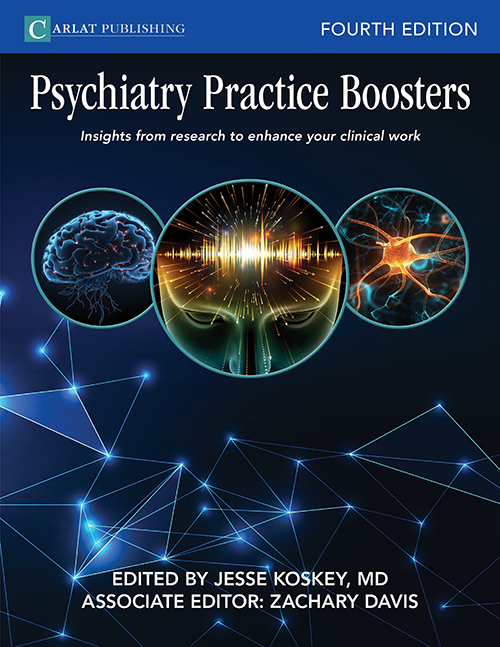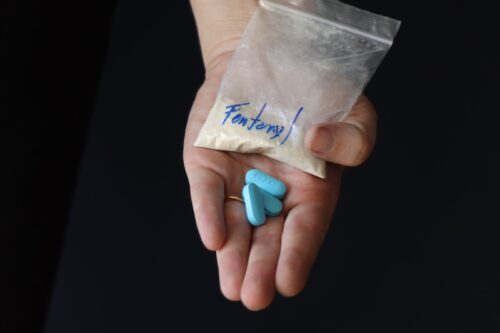Home » Risk of Psychosis With Stimulants in ADHD Patients
Risk of Psychosis With Stimulants in ADHD Patients

June 11, 2019
From The Carlat Child Psychiatry Report
Pavan Madan, MD
Dr. Madan has disclosed that he has no relevant financial or other interests in any commercial companies pertaining to this educational activity.
Review of: Moran LV et al, N Engl J Med 2019;380(12):1128–1138
In 2007, the FDA required stimulant manufacturers to warn of possible psychosis with stimulants. But what is the real incidence? This study set out to find and discern if there is a difference between methylphenidate and amphetamine classes of medications.
Drawing from two large commercial insurance databases, researchers looked at over 333,000 patients with ADHD ages 13–25 years who were prescribed a stimulant between 2004 and 2015, matching 110,923 methylphenidate users with an equal number of amphetamine users. The authors excluded patients with confounding variables (eg, glucocorticoid prescription) and adjusted for unmeasured confounders (eg, cannabis use). They defined “stimulant-induced psychosis” as a new psychotic illness within the follow-up period (median 4–5 months) along with a prescription for an antipsychotic within 60 days of that diagnosis.
Over the years 2005 to 2014, prescription of amphetamine salts increased 3.8 times, while that of methylphenidates increased only 1.6 times. It was notable that internists and family practice doctors tended to use amphetamines most often, prescribing amphetamines in 72.5% of stimulant prescriptions, with psychiatrists at 62.7% and pediatricians 51.6%.
The overall risk of psychosis was 1 in 660, with onset of psychotic symptoms occurring after a median 128 days. The risk in the amphetamine group was double compared to the methylphenidate group (237 episodes or 0.21% vs 106 episodes or 0.10%).
Amphetamine-related psychosis occurred more in younger children and those treated by non-psychiatrists (about 80% of patients). In the hands of internists and family practice doctors, the hazard ratio was 1.78, for pediatricians it was 1.7, and for psychiatrists it was 1.38.
CCPR’s TAKE
Amphetamines, such as Adderall, are more likely to lead to psychosis than methylphenidate, though the actual prevalence is quite low. We recommend extra caution in the use of stimulants (especially amphetamines) in those with other risk factors for psychosis (eg, family history of psychosis, cognitive or behavioral signs of prodromal psychosis, or concurrent cannabis use). In the broader picture, methylphenidate is usually better tolerated in any case and probably a better first-line medication.
Child PsychiatryIn 2007, the FDA required stimulant manufacturers to warn of possible psychosis with stimulants. But what is the real incidence? This study set out to find and discern if there is a difference between methylphenidate and amphetamine classes of medications.
Drawing from two large commercial insurance databases, researchers looked at over 333,000 patients with ADHD ages 13–25 years who were prescribed a stimulant between 2004 and 2015, matching 110,923 methylphenidate users with an equal number of amphetamine users. The authors excluded patients with confounding variables (eg, glucocorticoid prescription) and adjusted for unmeasured confounders (eg, cannabis use). They defined “stimulant-induced psychosis” as a new psychotic illness within the follow-up period (median 4–5 months) along with a prescription for an antipsychotic within 60 days of that diagnosis.
Over the years 2005 to 2014, prescription of amphetamine salts increased 3.8 times, while that of methylphenidates increased only 1.6 times. It was notable that internists and family practice doctors tended to use amphetamines most often, prescribing amphetamines in 72.5% of stimulant prescriptions, with psychiatrists at 62.7% and pediatricians 51.6%.
The overall risk of psychosis was 1 in 660, with onset of psychotic symptoms occurring after a median 128 days. The risk in the amphetamine group was double compared to the methylphenidate group (237 episodes or 0.21% vs 106 episodes or 0.10%).
Amphetamine-related psychosis occurred more in younger children and those treated by non-psychiatrists (about 80% of patients). In the hands of internists and family practice doctors, the hazard ratio was 1.78, for pediatricians it was 1.7, and for psychiatrists it was 1.38.
CCPR’s TAKE
Amphetamines, such as Adderall, are more likely to lead to psychosis than methylphenidate, though the actual prevalence is quite low. We recommend extra caution in the use of stimulants (especially amphetamines) in those with other risk factors for psychosis (eg, family history of psychosis, cognitive or behavioral signs of prodromal psychosis, or concurrent cannabis use). In the broader picture, methylphenidate is usually better tolerated in any case and probably a better first-line medication.
KEYWORDS adhd adolescents amphetamine child_psychiatry children free_articles medication methylphenidate pediatric psychosis research-update stimulant teens
Issue Date: June 11, 2019
Table Of Contents
Recommended
Newsletters
Please see our Terms and Conditions, Privacy Policy, Subscription Agreement, Use of Cookies, and Hardware/Software Requirements to view our website.
© 2025 Carlat Publishing, LLC and Affiliates, All Rights Reserved.


_-The-Breakthrough-Antipsychotic-That-Could-Change-Everything.jpg?1729528747)



